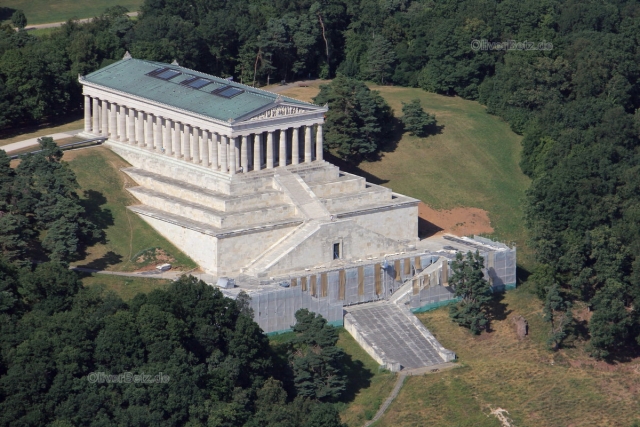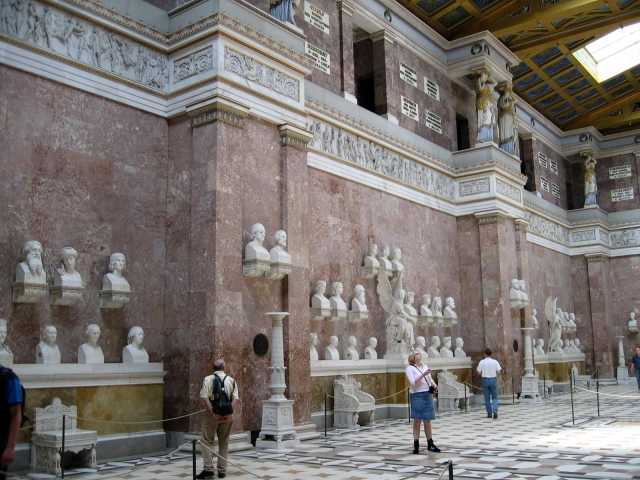Photo: iefimerida.gr
Relations between Germany and Greece are particularly intense. One could talk about relationships of love and hatred, writes author and journalist Philip Dourou, who looks at history from a surprising perspective.
"Until World War II, namely Greek culture allowed Germany to become a modern nation. Ever since, however, Berlin has perceived Athens as a negative example that does not want to apply the rules," Dourou writes in an article in Liberation, continuing, "Germany was built on the model of Ancient Greece and this model was destroyed during World War II."
Indeed, Germany and Greece have both a close, and strong and difficult relationship. Today there are two phenomena - at a time when Germany is the largest economic power and continuously accepting Greek emigrants, it is simultaneously sending German tourists to Greece on a mass scale.
Some Germans are showing some condescension towards Greece, of the type "they are poor, come to work in our country and fortunately, we can and go on holiday in the summer." Five years ago, Bild wrote on its cover "Sell your islands to us!", making clear that the Germans would manage them better.
Supporters of the Ancient Greek language
At the same time, removing Ancient Greek and Latin from school curriculum is unacceptable for the Germans. Politician Schäuble has classical education and he attended 5-6 classes in Greek and Latin a week.
A sense of inferiority has always been smouldering, although it is now reverse: we are culture today, the Germans say in a low voice. You can add to it the clichés that Greeks are liars, lazy and the like, Bild had devoted many pages to it. In other words, the Germans believe that the Greeks today are not on a level with their ancestors.
A bit of a love disappointment
However, modern Greeks have their feelings as well. Manolis Glezos, the man who took the German flag from the Acropolis during World War II, is a SYRIZA MEP today. Alexis Tsipras himself requested from the Germans war reparations to the amount of 300 billion. The idea caused a storm in Germany. Love for Greek culture and contempt for Greece are essentially two sides of the same coin. One is overestimated and the other underestimated. It is a bit like a love disappointment. You are guilty because we are disappointed with you, because you are not equal to the cultural and historical ideal of Ancient Greece.
Angela Merkel does not want to be the politician who will destroy what her ‘fathers’ in politics Konrad Adenauer and Helmut Kohl have created. She may have made history as the chancellor who has been elected three times but she does not want to be the one that will break up Europe to pieces. However, she has to work together with Schäuble for whom there are rules and they are sacred. Those rules have allowed Germany not to fall into the abyss of history and we all have to respect these rules.
What the Germans explain to Europe:
"We are ethics champions because our currency suffered twice, in 1923 and in 1948". Germany was required to apply very strict laws for more than 25 years and to destroy two regimes, until 1953, when the debt was haircut and global development allowed it to revive.
Passing through Greek culture
All historians, all university lecturers pass through Greek culture. All call Philip of Macedonia and Alexander the Great politicians who united and strengthened their country. In the 18th century when Pompeii was discovered, ancient Rome was fashionable everywhere except in Germany. Johann Winckelmann explored ancient sculpture and believed that Greece was the artistic standard that surpassed everything else.
Philosophers and Greece
In the early 19th century, all the big names in German literature, Goethe and Schiller, praised Greece, stating that it was their homeland. Philosophers such as Hegel, Nietzsche and Heidegger swore in the name of Greece. Linguists studied the Greek and German languages and announced that linguistically, they both had the same structure, "these are the same languages, they have the same spirit." Ludwig of Bavaria built Valhalla Memorial in the valley of the Danube after the pattern of the Parthenon.


Speaking Ancient Greek was a must
The Germans identified Greece with reflection, authenticity, absolute truth. To attend any of the lectures of Heidegger, one should speak Greek very well as the examined texts were in this language. Hannah Arendt and all his students worked with Ancient Greek texts, not raising the issue of translating them. For Heidegger, the only languages in which one might think were Greek and German. Greece was the culmination of thought and Germany its natural follower.
Tourists and Heidegger
There is an anecdote that in the early 1960s, Elfriede Heidegger offered her husband to visit Greece. Heidegger was hesitant at first but did so afterwards. Finally, he wrote a text that tells of his disappointment, having seen the ancient monuments full of tourists with cameras who prevented him from reflecting.